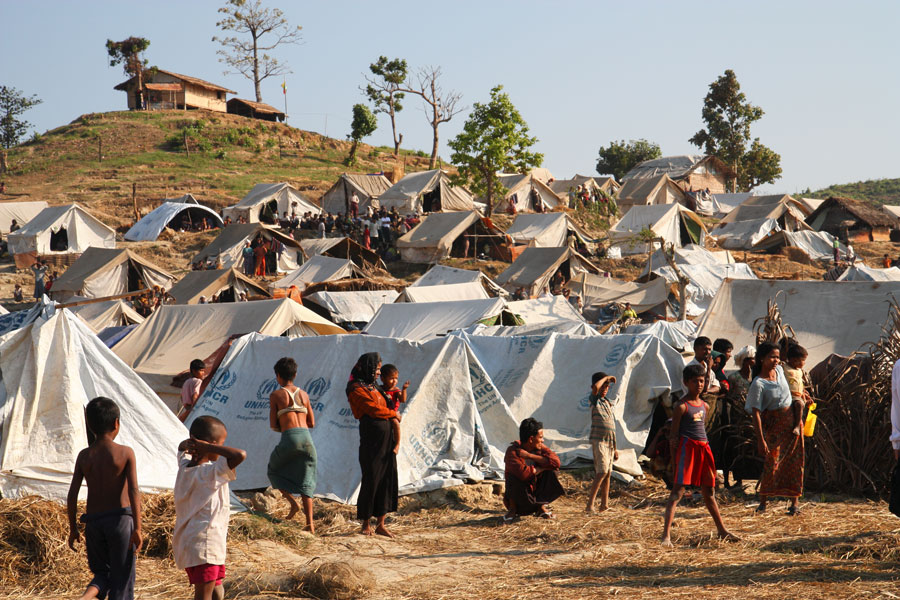Since August 2017, nearly a million Rohingya Muslim refugees have crowded into the Cox’s Bazar region of Bangladesh, fleeing violence in Myanmar’s Rakhine State. Women and children face difficult challenges in the massive refugee camps, including lack of adequate shelter, healthcare and educational resources, and an increased risk of sexual violence.

Sakun Gajurel worked in Italy and in her native Nepal with United Nations agencies before studying international development policy at the Rotary Peace Centre at Duke University and University of North Carolina at Chapel Hill. As part of her Rotary Peace Fellowship, Sakun spent the summer of 2018 working in Cox’s Bazar with an organisation called UN Women that provides direct aid to women in the refugee camps.
What are the greatest challenges in getting aid to Cox’s Bazar?
Close to 900,000 refugees crossed the borders in less than a year’s time. In monsoon season, things got worse. Tents built with a bamboo frame and tarpaulin cannot resist heavy rain or minor landslides. A few thousand shelters were destroyed every week in the aftermath of heavy rains.
A longterm solution is necessary to ensure that a whole generation does not end up without education or opportunities to better their lives.
For humanitarian agencies, reaching everyone is another challenge due to poor road conditions. The sheer number of refugees makes effective support problematic.
What problems do women and girls in particular face?
Women and girls are more vulnerable to violence. In some crisis settings, more than 70 percent of women have experienced gender-based violence. Women often report challenges accessing sanitation and hygiene facilities at night or when they are menstruating. They face heightened risks as well as increased care-related tasks such as providing food and water for their families and caring for the sick.
How do tradition and culture affect the ways assistance is provided?
Gender segregation is generally common among the Muslim Rohingya population. It is closely connected to the practice of purdah, or preventing women from being seen by men other than their husbands. Women and girls are expected to stay in the home and be close to their family, whereas men and boys are more present in the public sphere.

Through multipurpose women’s centres, UN Women engages and empowers women. Women and girls can come to a centre like the one in Cox’s Bazar and get information about the services and opportunities in the camps. About 20 women serve in the centre in Cox’s Bazar as outreach workers. These are Rohingya women who talk to other women and bring their issues and challenges to the centre as well as to meetings with camp officials.
What kind of assistance is most needed?
Education is one of the greatest needs. The education partners in Cox’s Bazar have set up learning centres that provide three shifts of two-hour lessons. However, it is not enough. Men and women often express a desire to learn new skills.
The UN has already announced that the Rohingya refugee crisis will be a protracted issue. History shows that once a refugee crisis becomes protracted, refugees often spend decades in the settlement camps. A long-term solution is necessary to ensure that a whole generation does not end up without education or opportunities to better their lives.
© Rotary.org





